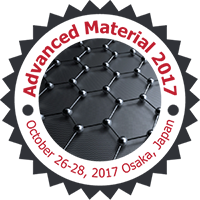
Yuyan Jiang
Chinese Academy of Sciences, China
Title: Smart Materials for Energy Harvesting and Thermal Management- Adaptive Control and Self-Driven Devices for Heat Transfer
Biography
Biography: Yuyan Jiang
Abstract
Smart materials, that can change structures and/or physical-chemical properties by active or passive control, has potential applications in energy engineering. They can be used to design cute and efficient energy converting systems, e.g. waste heat generation systems made of shape-memory-alloys (SMA). The advances of electronic and aerospace engineering calls for more robust thermal management technologies that can help the devices to discharge intensive heat release and mitigate the temperature fluctuation. To this end, smart materials can take their inherent advantages in heat transfer enhancing and in providing extra measures for driving coolant flow.
In our latest studies, a novel deformable structured surface was fabricated by SMA for the enhancement of boiling heat transfer. Pool boiling heat transfer on deformable structures were performed in three fluids (ethanol, FC-72, water) with different thermal properties was explored. Comparing heat flux versus wall superheat and HTC at different fluxes with fixed geometry, it is found that deformable structure combines the merits of closed-tunnel and open-tunnel. At low heat fluxes, it can increase the numbers of nucleation sites inside the closed tunnels with bent fins and after recovering with open tunnels, the nucleation sites are activated and the bubble growth and departure is accelerated to enhance the HTC significantly. On the other hand, by choosing the appropriate time and opportunity for different fluid to open the tunnels, the deformable structures can be used to achieve adaptive-control of boiling heat transfer. In another study, researchers from POSTECH proposed a smart TiO2-coated surface (TCS) for boiling heat transfer. The surface changes its wettability with temperature. Measurement of the contact angle of a water droplet on the tested surfaces after heat treatment showed a wettability increase of TCS, a contact angle reduction from 83.1_ to 32.7_ when the heat treatment temperature changed from 100 _C to 200 _C, in other words, TCS is hydrophobic at a low wall temperature and becomes hydrophilic as the wall temperature increases. Hydrophobicity of TCS at low wall temperatures. The TCS improved both the heat transfer coefficient near the boiling inception point at low heat flux regime, and critical heat flux at high wall temperatures. People are also developing heat transfer devices that have SMA self-driven unit for flow circulations that working with temperature differences.
The study on energy harvesting and thermal management by use of smart materials is a quite young interdiscipline research field, which is still in the initial stage. This presentation gives a critical review to the latest pioneering work. By summarizing the advancements, we propose some comments on the principles and prospect for the future development.

